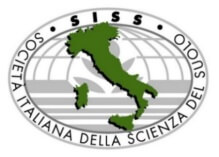RESPONSE OF PLANT-BACTERIA INTERACTION MODELS TO NANOPARTICLES
DOI:
https://doi.org/10.6092/issn.2281-4485/3749Keywords:
nanoparticles, plant-bacteria interaction, virulence, models, impact, riceAbstract
The aim of this study was to evaluate the possibility of using some models developed to study the plant-bacteria interaction mechanisms for the assessment of the impact of chronic exposure to nanoparticles. Rice-associated bacteria showed that some models are sensitive to the presence of NPs and allow a quantification of the effects. Further work needs to be performed in order to set appropriate reference baselines and standards to assess the impact of NPs on the proposed biological systems.
References
COENYE T., HOLMES B., KERSTERS K., GOVAN JR, VANDAMME P. (1999). Burkholderia cocovenenans (van Damme et al. 1960; Gillis et al. 1995) and Burkholderia vandii (Urakami et al. 1994) are junior synonyms of Burkholderia gladioli (Severini 1913; Yabuuchi et al. 1993) and Burkholderia plantarii (Azegami et al. 1987; Urakami et al. 1994) respectively. Int J Syst Bacteriol. 1:37-42.
COTTYN B., VAN OUTRYVE M.F., M. T. CEREZ, M. DE CLEENE, J. SWINGS, AND T. W. MEW. (1996). Bacterial diseases of rice. II. Characterization of pathogenic bacteria associated with sheath rot complex and grain discoloration of rice in the Philippines. Plant Dis. 80:438-445.
FALUGI C, ALUIGI M.G., CHIANTORE M.C., PRIVITERA D., RAMOINO P., GATTI M.A., FABRIZI A., PINSINO A., MATRANGA V. (2012). Toxicity of metal oxide nanoparticles in immune cells of the sea urchin. Mar Environ Res. 76:114-21.
GATTI A.M., BOSCO P., RIVASI F., BIANCA S., ETTORE G., GAETTI L., MONTANARI S., BARTOLONI G., GAZZOLO D. (2011). Heavy metals nanoparticles in fetal kidney and liver tissues. Front Biosci (Elite Ed). 3:221-6.
KOJIC M., DEGRASSI G., VENTURI V. (1999). Cloning and characterisation of the rpoS gene from plant growth-promoting Pseudomonas putida WCS358: RpoS is not involved in siderophore and homoserine lactone production. Biochim Biophys Acta. 1489:413-20.
IANNITTI T., CAPONE S., GATTI A., CAPITANI F., CETTA F., PALMIERI B. (2010). Intracellular heavy metal nanoparticle storage: progressive accumulation within lymph nodes with transformation from chronic inflammation to malignancy. Int J Nanomedicine. 5:955-60.
MATTIUZZO M., BERTANI I., FERLUGA S., CABRIO L., BIGIRIMANA J., GUARNACCIA C., PONGOR S., MARAITE H., VENTURI V. (2011). The plant pathogen Pseudomonas fuscovaginae contains two conserved quorum sensing systems involved in virulence and negatively regulated by RsaL and the novel regulator RsaM. Environ Microbiol. 13:145-62.
MNYUSIWALLA A., DAAR A.S., SINGER P.A. (2003). Mind the gap: science and ethics in nanotechnology. Nanotechnology 14(3): R9. Bibcode 2003 Nanot.14R..9M. DOI:10.1088/0957-4484/14/3/201.
NANOTECHNOLOGIES: level 2/6. What are potential harmful effects of nanoparticles? (http://ec.europa.eu/health/opinions2/en/nanotechnologies/l-2/6-health-effects-nanoparticles.htm)
SHEN Y., RONALD D.P.S. (2002). Molecular determinants of disease and resistance in interactions of Xanthomonas oryzae pv. oryzae and rice. Microbes Infect. 41361-1367.
SUÁREZ-MORENO Z.R., CABALLERO-MELLADO J., COUTINHO B.G., MENDONÇA-PREVIATO L-, JAMES E.K., VENTURI V. (2012). Common features of environmental and potentially beneficial plant-associated Burkholderia. Microb Ecol. 63:249-66.
YING J. (2001). Nanostructured Materials. New York: Academic Press. ISBN 0-12-744451-3.
VITTORI ANTISARI L., CARBONE S., FABRIZI A., GATTI A., VIANELLO G. (2011). Response of soil microbial biomass to CeO2 nanoparticles. EQA 7:135-150.
Downloads
Published
How to Cite
Issue
Section
License
Copyright (c) 2012 Giuliano Degrassi, Iris Bertani, Giulia Devescovi, Alberto Fabrizi, Antonietta Gatti, Vittorio Venturi
Copyrights and publishing rights of all the texts on this journal belong to the respective authors without restrictions.
Articles published since 2020 are licensed under a Creative Commons Attribution 4.0 International License:
Previous articles are licensed under a Creative Commons Attribution-NonCommercial 3.0 Unported License:











